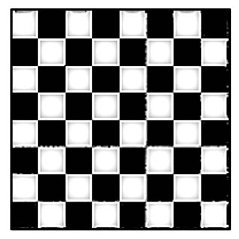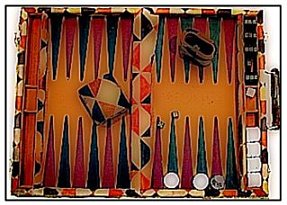Board-Games
in Your Curriculum!
Board-games are mini-universes. Portable versions support small groups but can open up anywhere. Electronic and Internet versions support larger populations but can be restricted by power and broadcast requirements. Physical or virtual, these games require sophisticated layers of knowledge, understanding, and application.

During and after a game, we can discuss how we moved and thought and rethought. We continue to learn. We continue to enjoy. We stretch our intellects.
The best boards are simply designed and elegant in their use of space. The best games provide the most interesting play, the most challenge, the most variety in movement or variation or outcome.
In classrooms and libraries, a dedicated shelf gives everyone a chance with every major type of board-game. The sets provide a basic pool of common content experience, referents, sense of order, group socializing, and problem-solving.
Experience with board-games also encourages us to
1) identify similarities between boards from
* graphics, layout, and design context
* rules
* pattern recognition
* playing pieces
* hazards/penalties
* bonuses/rewards
* websites and forums.
2) use prior knowledge about human behavior to
* dramatize/ pretend
* assume identity/characteristics in role-playing
* socialize with peers during game play
3) make connections to practice prediction and test strategy
4) understand subsets to
* discover choice possibilities
* experiment with moves
* build strategy repertoire
5) practice
* continuous value assessment
* risk management
6) gain insight into other interpretations and points of view in discussing tactics and strategies across cultures and age groups
7 ) understand that games vary in complexity
8) achieve measures of
* self-knowledge
* self-reliance
* self-confidence.

At any grade level, there were always students in class who were fascinated with the idea they could play the same board-game that engaged Shakespeare or a great monarch or famous soldier or writer or musician. We learned that some of the versions we enjoyed were centuries old but we could still find similarities between these and the modern, very young editions.
Once we had some experience under our belts, we chose our favorite features, our favorite activities, and built our own board-games.
What Math!
What Language!
What Geography!
What Art and Design!
What Consumer Study!
What History!
And so much more.
What Do Your Students Learn From
Board-Games?
What's your favorite classic board-game?
Share the lessons you have learned
from students playing your chosen board-game!
Return from Board-Games to Real World Content Advantage home page.